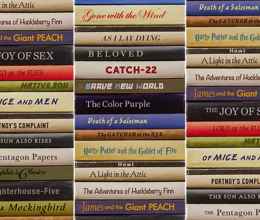
On Wednesday, May 7, 2020 ACLU of Alaska Policy Director Triada Stampas testified during a Matanuska-Susitna School Board meeting in support of rescinding the board's April 22, 2020 decision to remove books and teaching materials labeled “controversial” from the High School English Elective Curriculum and Reading List, Part I.
Since its founding in 1920, the ACLU has opposed censorship in all its forms. From books and radio to film, television, and the Internet, we have consistently fought to make sure Americans have the right to say, think, read, and write whatever they want, without fear of reprisal. The First Amendment does not allow the government to get rid of or limit the use of books or ideas because they are controversial, unpopular, or offensive. Opposition to censorship is especially important in our schools, because students do not lose their constitutional rights “at the schoolhouse gate.” On April 22, 2020, when the MSSB voted to remove The Things They Carried, by Tim O’Brien, I Know Why the Caged Bird Sings, by Maya Angelou, Catch-22, by Joseph Heller, Invisible Man, by Ralph Ellison, and The Great Gatsby, by F. Scott Fitzgerald, it did so with the admission of several members supporting the motion that they had either never read the books, could no longer remember them, or had read study guides instead. The discussion regarding the use of The New York Times’ The Learning Network focused not on the lesson plans but on the fact that it was produced by The New York Times and could include New York Times content, suggesting this alone was an objectionable feature.
Read the ACLU of Alaska's testimony below.